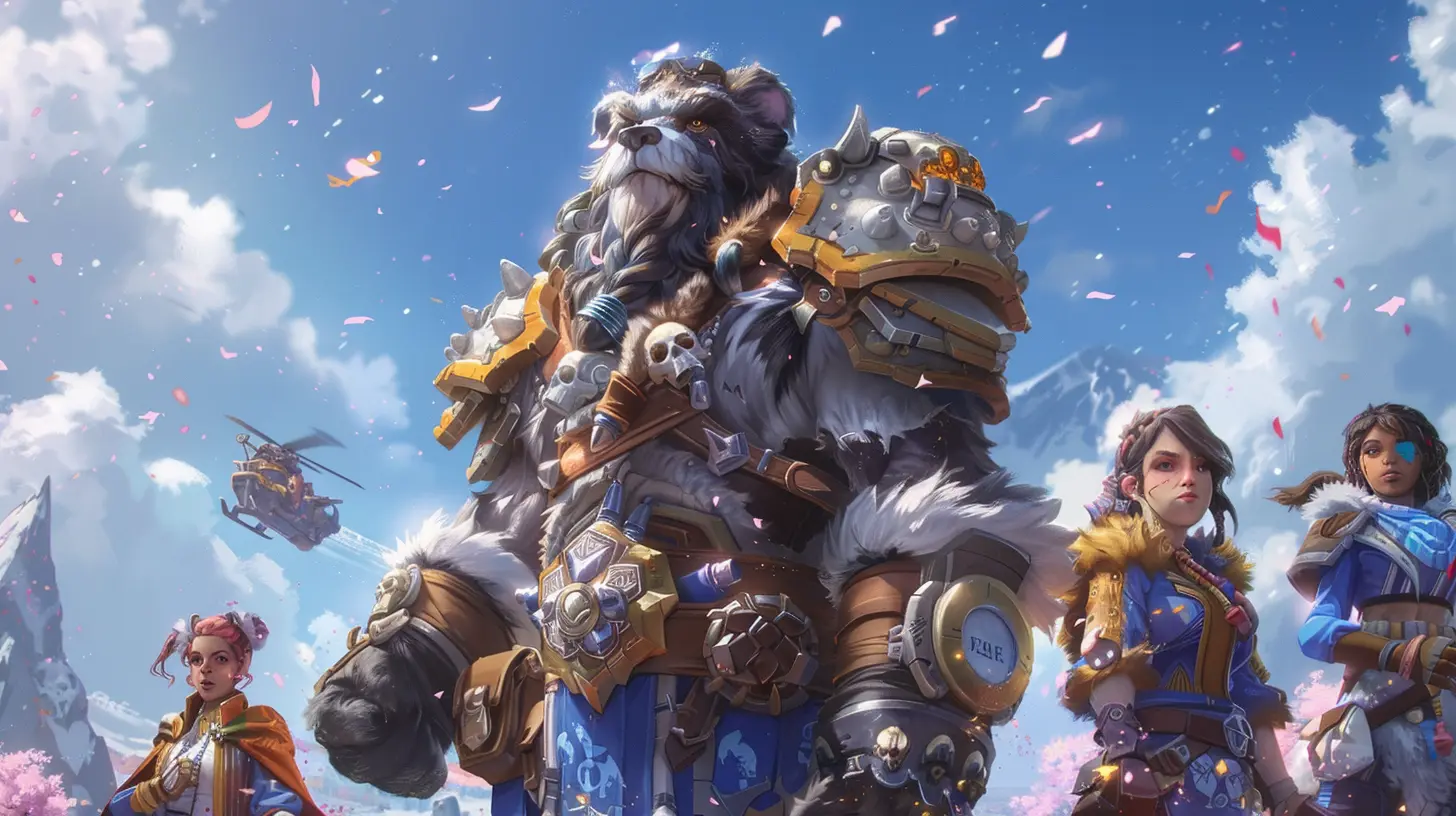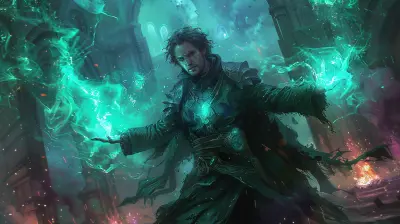How FOMO Drives the Popularity of Season Passes
21 October 2025
Let’s face it: we’ve all felt the pangs of FOMO (Fear of Missing Out). Whether it’s seeing photos of friends at a party you skipped or hearing about a limited-edition product you didn’t snag, the anxiety of being left out is real. It gnaws at you, making you second-guess your decisions. In the gaming world, this phenomenon has a stranglehold on one specific revenue model: season passes.
Season passes have become a cornerstone of modern gaming, blending content delivery with some clever psychology. But have you ever stopped to wonder why they’re so darn effective? Spoiler alert: it’s FOMO at work.
In this article, we’ll break down how FOMO fuels the success of season passes, diving into the clever ways gaming companies tap into our emotions. So grab your controller—or mouse and keyboard—and let’s figure out why we can’t resist buying in. 
What Exactly Is a Season Pass?
Before we unravel the FOMO connection, let’s make sure we’re all on the same page. A season pass is essentially a subscription model in gaming. When you buy one, you gain access to a variety of exclusive in-game perks over a set “season,” which usually lasts a few months.These perks often include:
- Exclusive Skins and Cosmetics: Who doesn’t want their character to look like a total legend?
- Unlockable Content: Maps, weapons, story expansions—you name it.
- XP Boosts: Because leveling up faster is always satisfying.
Season passes are a win-win for game developers and publishers. Players stay engaged, and companies rake in steady revenue. But there’s more to their success than just good content. 
The FOMO Factor: Why It’s Critical
So, why do so many of us feel compelled to buy season passes, even when we’re not sure we’ll have time to play the game? FOMO is the key ingredient.Humans are social creatures by nature. We hate the idea of being left behind or missing out on something valuable—especially when everyone around us seems to be cashing in on the fun. Game developers know this, and they bake FOMO right into the design of season passes. Let’s break it down.
1. The Countdown Timer Anxiety
Most season passes are tied to limited-time events. Ever noticed that ominous countdown clock glaring at you in the game menu? It’s screaming, “Time is running out!”Here’s the psychology: when we feel like we’re racing against the clock, it triggers a sense of urgency. Suddenly, the idea of missing out feels unbearable. You convince yourself, “If I don’t buy this now, I might never get another chance.” This ticking time bomb is one of the most effective ways to get players to pull the trigger on a purchase.
2. Exclusive Rewards: The Power of Prestige
Let’s talk about the sweet, sweet incentives. Season passes often come packed with exclusive items you can’t get anywhere else. That ultra-rare skin? That shiny emote? They’ll disappear forever once the season ends.Think about it: seeing another player rocking an outfit you’ll never be able to own stings. It’s like walking into a party where everyone has the VIP wristband, and you’re stuck sipping punch in the corner. Nobody wants to feel that way, and game developers capitalize on it by making these rewards limited and alluring.
3. Peer Pressure: Everyone’s Doing It
Gaming is often a social activity. When all your friends are unlocking season pass rewards and sharing their progress, it creates a sense of peer pressure. It’s human nature to want to keep up with the pack, and not having the season pass can make you feel like an outsider.It’s like being the only kid on the block who didn’t get the latest toy. You’re still part of the group, but you know you’re missing out on the shared excitement. That’s enough to make anyone cave.
4. The Sunk Cost Fallacy
Once you’ve put time (or money) into a game, you’re more likely to stick around—and spend more. The sunk cost fallacy makes season passes an irresistible lure.For instance, if you’ve already poured hours into leveling up in a game, purchasing the season pass feels like the logical next step. It’s as if you’re telling yourself, “I’ve come this far. Why stop now?” Developers know this and design season passes to complement the effort you’ve already invested.
5. The Illusion of Value
Season passes are often marketed as an incredible value. Developers toss around phrases like “Over $100 worth of rewards for just $10!” Even if you weren’t planning to spend money, this perceived value makes it hard to resist.“But what if I miss out on such a good deal?” That little voice in your head whispers. FOMO combines with our love of bargains, and before you know it, you’ve clicked “buy.” 
Why FOMO Works So Well in Gaming
Gamers, by nature, are a passionate and competitive bunch. We thrive on achievements, rewards, and standing out in the community. FOMO taps into all these desires.Combine that with the shared experience of gaming—playing alongside friends, participating in events, or streaming your gameplay—and you’ve got a recipe for emotional investment. Missing out doesn’t just feel bad; it feels like losing a piece of your identity as a gamer. 
Can We Resist the Power of FOMO?
Okay, so we know how FOMO works. But can we fight back against its grip? Absolutely, though it takes a bit of willpower. Here are some strategies to keep the fear in check:- Set a Budget: Decide in advance how much you’re willing to spend on gaming each month. This prevents impulse buys.
- Evaluate the Content: Ask yourself, “Do I really want these rewards, or am I just afraid of missing them?”
- Remember It’s a Game: At the end of the day, missing out on a season pass won’t ruin your gaming experience—your skills and enjoyment matter more than cosmetics.
- Wait for Reviews: Sometimes, season pass content doesn’t live up to the hype. Waiting for feedback can save you from overspending.
The Future of FOMO and Season Passes
Love it or hate it, season passes aren’t going anywhere. As games-as-a-service models grow, expect even more inventive ways to trigger FOMO. Developers will continue to refine their strategies, offering just enough to keep us hooked without making us feel completely exploited.But as savvy players, we can arm ourselves with knowledge. By understanding how FOMO works, we can make smarter choices—and maybe even hold onto our hard-earned cash now and then.
Final Thoughts
At its core, FOMO is a psychological phenomenon that developers have mastered for good reason. Season passes thrive because they tap into our desire to belong, achieve, and not miss out on something amazing.If you’ve ever hesitated at the sight of a countdown timer or felt a pang of envy over a rare skin, don’t beat yourself up. You’re not alone—it’s all part of the game (literally).
So, next time that tantalizing season pass flashes on your screen, take a deep breath. You’ve got the power to decide whether to join in or let it pass. And trust me, gaming is still epic either way.
all images in this post were generated using AI tools
Category:
Season PassesAuthor:

Francesca West
Discussion
rate this article
1 comments
Valencia Abbott
FOMO turns gaming into a high-stakes race, with season passes transforming players into eager collectors. It’s a clever strategy—who can resist the allure of exclusive content when missing out feels like losing the game before it even starts?
October 24, 2025 at 2:31 AM

Francesca West
Absolutely! FOMO effectively enhances engagement by turning gameplay into a competitive endeavor, making exclusive content feel essential. It’s a smart tactic that keeps players hooked.


